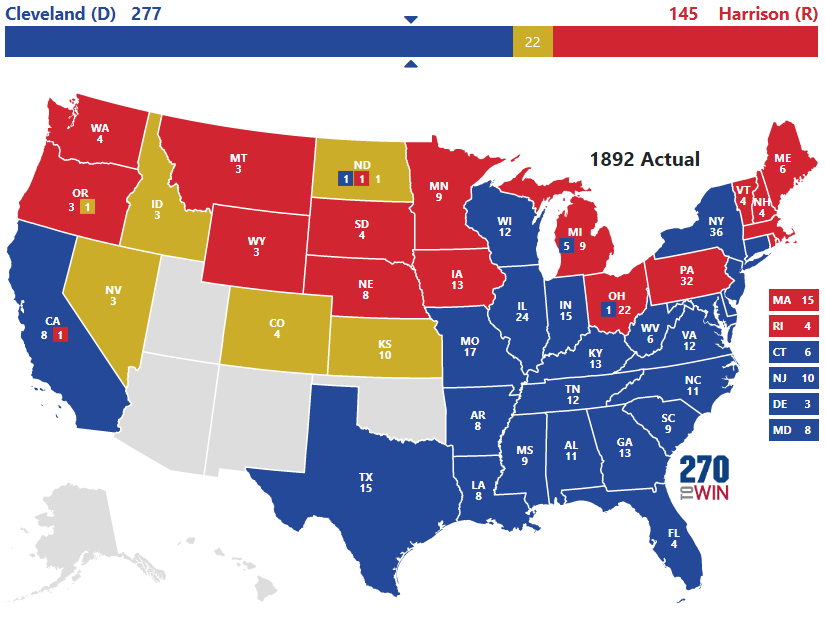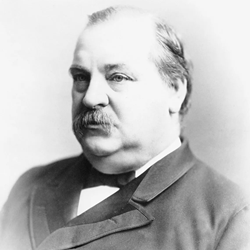1892 Presidential Election
Presidential elections were held in the United States on November 8, 1892. In the fourth rematch in American history, the Democratic nominee, former president Grover Cleveland, defeated the incumbent Republican President Benjamin Harrison. Cleveland's victory made him the first president in American history to be elected to a non-consecutive second term, a feat not repeated until Donald Trump was elected in 2024.
The campaign centered mainly on economic issues, especially the protectionist 1890 McKinley Tariff. Cleveland ran on a platform of lowering the tariff and opposed the Republicans' 1890 voting rights proposal. He was also a proponent of the gold standard, while the Republicans and Populists both supported bimetallism.
Source: Wikipedia
1892 Election Results
| Candidate | Party | Electoral Votes | Popular Votes | ||
|---|---|---|---|---|---|
| ✓ | Grover Cleveland | Democratic | 277 | 5,556,918 | |
| Benjamin Harrison (I) | Republican | 145 | 5,176,108 | ||
| James B. Weaver | People's | 22 | 1,027,329 |

1892 Election Facts
- Welcome: Idaho, Montana, North Dakota, South Dakota, Washington and Wyoming become states during this election cycle
- Grover Cleveland first President elected to a 2nd, non-consecutive term
- Oregon: Voters chose electors directly, with three pledged to Harrison (R) and one to Weaver (P) winning.
- California: Voters chose electors directly, with eight pledged to Cleveland (D) and one to Harrison (R) winning.
- Ohio: Voters chose electors directly, with 22 pledged to Harrison (R) and one to Cleveland (D) winning.
- Michigan: A district-based system was used, similar to ME/NE today. Nine districts voted for Harrison (R), 5 for Cleveland (D).
- North Dakota: Voters chose electors directly. The Democrats and Populists ran on a fusion ticket, which won two electoral votes that were cast one each for Weaver (P) and Cleveland (D). Harrison (R) won the third electoral vote.
- Issues of the Day: Farming Issues, Homestead Steel Strike


